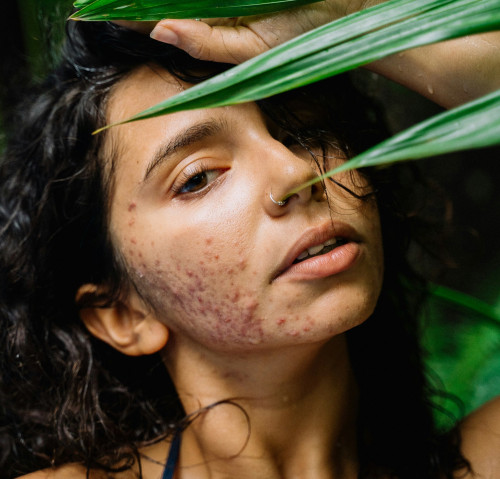Acne, a common skin condition that affects people of all ages, can be both frustrating and disheartening. While many people believe that acne is solely the result of poor skin care or hygiene, it is, in fact, a multifaceted condition with a variety of contributing factors. In this blog, I’d like to explore the different contributors to acne, shedding light on the complex nature of the condition.
Different contributors to acne:
1. Hormonal Fluctuations
Hormonal imbalances are one of the primary contributors to acne. This is especially true during puberty, when the body experiences significant hormonal changes. Androgens, a group of hormones, can lead to increased oil production and cause hair follicles to become clogged, resulting in acne.
2. Excess Sebum Production
The skin naturally produces an oily substance called sebum, which helps keep it moisturized and protected. However, excess sebum production can lead to clogged pores, creating an environment where acne-causing bacteria can thrive. This is why people with oily skin are more prone to acne. Acne often starts with clogged pores and hair follicles. Dead skin cells, excess sebum, and even certain cosmetics can block these openings, creating an ideal environment for acne-causing bacteria to multiply. This can lead to the formation of pimples, blackheads, and whiteheads.
3. Bacterial Overgrowth
Propionibacterium acnes (P. acnes) is a type of bacteria that naturally resides on the skin. When these bacteria multiply excessively, they can trigger inflammation and contribute to the formation of pimples. Inflammatory acne is often more painful and stubborn.
5. Inflammation
Inflammation is a central component of acne. The body’s immune response to clogged pores and bacterial overgrowth can result in redness, swelling, and discomfort. Chronic inflammation can worsen the severity of acne.
7. Diet and Lifestyle Choices
While diet and lifestyle aren’t the sole culprits of acne, they can influence its severity. High-glycemic foods (foods high in sugar) have been linked to acne exacerbation in some individuals. Additionally, smoking and excessive stress can negatively impact the skin, making it more prone to acne.
8. Cosmetic Products
The use of certain cosmetic products can contribute to acne. Ingredients like comedogenic (pore-clogging) substances may aggravate existing acne or trigger breakouts in susceptible individuals. It’s important to choose non-comedogenic products if you’re prone to acne.
9. Environmental Factors
Environmental factors, such as pollution, can expose the skin to harmful particles and irritants that may exacerbate acne. Also, excessive exposure to ultraviolet (UV) rays can damage the skin, increasing the risk of acne scarring.
10. Digestive Concerns
Digestion and skin health are very closely related. If our digestion is impaired, and we’re not absorbing the nutrients from our food that we need to keep our skin healthy, our skin barrier can become more susceptible to damage. Additionally, if we’re not eliminating toxins from the body as effectively as we should be, these toxins need to find a way to exit the body (often through the skin), contributing to increased inflammation and worsened acne.
Understanding the different contributors to acne is essential for effective prevention and treatment. While some factors are beyond our control, such as genetics and hormonal fluctuations, others, like skincare routines and lifestyle choices, can be modified to manage and reduce acne symptoms. It’s important to remember that acne is a highly individualized condition, and what works for one person may not work for another. Seeking advice from a naturopathic doctor can be the first step in developing a tailored approach to addressing your specific acne concerns. With the right knowledge and guidance, you can better manage and potentially overcome this complex skin condition.
